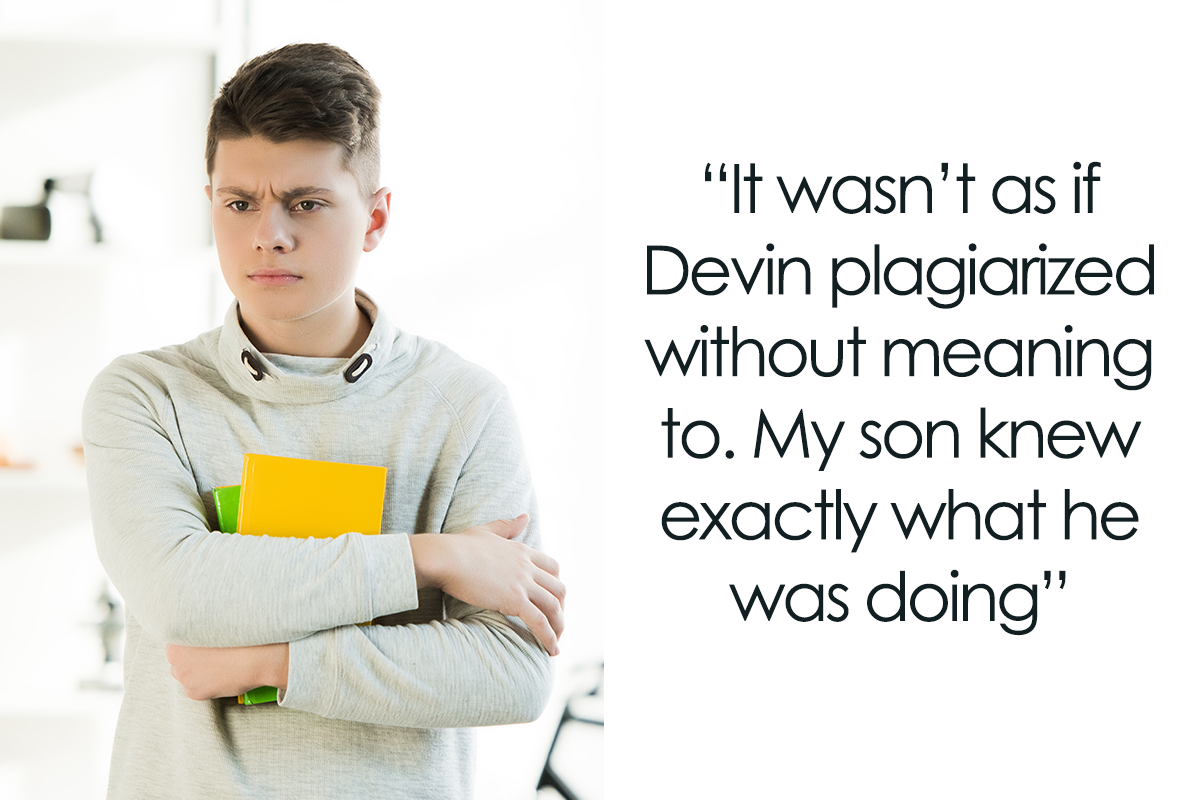
Dad Thinks Son Deserved The Punishment After He Was Caught Cheating, Mom Is Mad
Interview With ExpertPlagiarism is a serious offense both in the academic world and in many workplaces. And high school is a great place for kids to make mistakes and learn about academic misconduct. Their missteps won’t result in any legal or monetary repercussions. Yet it can teach kids a lesson in what happens when you present someone else’s work as your own.
The parents in this story disagreed on what the right punishment for plagiarism should be. The dad, aka u/NotFixingSonsGrade, asked the Internet’s opinion on whether he was right not to challenge the zero his son got for plagiarizing an essay. The mother disagreed, claiming that this would impact the son’s academic future negatively. To better understand where the mother is coming from, the dad asked for more opinions. And the Internet delivered.
Bored Panda sought out some expertise to better understand how a parent should react in a situation like this. Clinical psychologist Thai Alonso was once again kind enough to weigh in on one of our stories. You can find her comments below!
More info: Thai Alonso, PhD | Instagram
Plagiarism is stealing someone else’s work, it can destroy reputations and result in legal consequences
Image credits: drazenphoto /envato (not the actual photo)
This dad wanted his high-schooler son to learn this lesson the hard way but angered his mom in doing so
Image credits: LightFieldStudios / envato (not the actual photo)
Image credits: NotFixingSonsGrade
A clinical psychologist offers two ways of approaching academic dishonesty with children
Thai Alonso is a clinical psychologist whose fields of expertise include parenting, relationships and self-esteem. She says there are two possible ways of supporting a child who decided to cheat at school.
Parents might approach this issue with curiosity. Alonso suggests saying: “I wonder why you felt you had to go about it this way?” or “What might have happened if you didn’t?” She explains the rationale behind this approach. “This allows us to gain a better understanding of what is motivating this behavior so that we can more effectively support the child.”
“For instance, is the child having a hard time with the material or struggling to plan ahead and is afraid to ask for help? Are they worried that they will be punished or embarrassed if they get a low mark? Perhaps there is another reason.”
The second option, according to the clinical psychologist, is to allow them to face the natural consequences of their behavior. “This might sound like, ‘You cheated and got a zero. What can you do differently next time?'”
Alonso emphasizes the importance of a safe and supportive environment when kids face the realities of their decisions. “Sure, no one wants their child to fail a project but sometimes consequences like this one are necessary for fully comprehending the gravity of one’s decisions,” she explains.
“Facing these outcomes early on may be uncomfortable but with some curiosity, compassion and support, we can help get at the root of the behavior so that children are better equipped for similar challenges in the future.”
Telling your kid that cheating is okay is the same as telling them it’s okay to lie
Image credits: Mikhail Nilov / pexels (not the actual photo)
Cheating in high school is quite a common occurrence. Many of us probably have done it in one form or another. That’s one of the reasons why people (and adolescents especially) think it’s okay. Should parents let it go just because academic cheating is so commonplace?
Essentially, no, psychologist Carl E Pickhardt, Ph.D., writes for Psychology Today. He claims that “the core dynamic in cheating is too serious, too risky, and potentially too formative to ignore.” Pickhardt writes that cheating is the same as lying. And if a child believes that plagiarism and other forms of cheating are okay, they risk making a habit of lying.
The psychologist suggests emphasizing the consequences cheating will have on the child. It’s not so much a behavioral issue between the parent and the child. Parents should acknowledge why the kid decides to cheat and let them know the possible costs.
“Parents can declare that how much to cheat in school, and in life, is a matter of choice that people must weigh every step of the way,” Pickhardt writes. “They can explain: ‘How honest do I want to be?’ is a question everybody, young and old, asks all the time.”
Young students understand the moral dilemma of cheating, yet they still do it
Image credits: Andy Barbour / pexels (not the actual photo)
Researchers from the University of Virginia conducted a survey on teen moral formation in 2021. 83% of the respondents claimed they think honesty is very important, if not essential, to them. Qualities like ‘hard-working’, ‘reliable and dependent’ were more relevant than being ‘ambitious’ or ‘a leader.’
Yet, kids who want to be honest and know that cheating is wrong still do it. What are the roots of this discrepancy? Most research claims that personal and situational factors override this ideal. Either they’re afraid of failure or ease their guilt because ‘everyone else is doing it too.’
Research Professor of Sociology Joseph E. Davis, Ph.D., offers another reason. He says we should blame adults who send adolescents mixed messages in their most formative years. Adults tell teenagers that honesty and integrity are the standards they should meet. Yet, “they are regularly exposed to the idea that success involves a trade-off with honesty and that cheating behavior, though regrettable, is ‘real life.'”
Davis cites the 2012 Josephson Institute survey of 23,000 high school students. 57% of them said that “in the real world, successful people do what they have to do to win, even if others consider it cheating.” The professor observes that educational success becomes more important for the students than honesty.
Davis theorizes that the solution could be consistent norms, values and expectations. Achievement and the ‘real world’ shouldn’t be in opposition to honesty. “Rather than confronting students with trade-offs that incentivize ‘any means necessary,’ they would receive positive, consistent reinforcement to speak and act truthfully,” Davis writes.
People in the comments agreed with the OP’s parenting technique
Poll Question
Thanks! Check out the results:
I love the comment that thought "going through the entire essay changing every occurrence of one letter" took a lot of effort. Somebody never heard of this amazing Find/Replace functionality that's only been around in text editors and word processors since, ooo, the 1970s.
That's exactly what I was thinking! Takes 20 seconds max.
Load More Replies...That mom is ridiculous. NOW is the time to teach him a lesson. NOW he has the lowest stakes ever since his current grade won't impact anything in his future. No employer will care that he got a D in school. But if he repeats that in Uni , his career is over. And if he doesn't learn right now that this is what happens if he plagiarizes, then he'll never learn, he'll always believe that he can just challenge the decision and get away. But the caveat is, with her behaviour the mom actually destroyed the lesson and made it meaningless. He'll still believe that he could have winged it if his father hadn't intervened because his mom is blaming the bad grade on his dad's decision. So OP should immediately go to the teacher together with the son and ask to be talked through the appealing process and have his son explained what consequences that could have had to hammer the lecture in. Otherwise he'll definitely try again
That's what I was thinking. I was wondering if the US system was different to ours since he was apparently only a junior (grade 10) I would have thought his grades meant precisely zero to his Uni chances. Here at least it's only your final year results that matter not something you did two years earlier.
Load More Replies...I love the comment that thought "going through the entire essay changing every occurrence of one letter" took a lot of effort. Somebody never heard of this amazing Find/Replace functionality that's only been around in text editors and word processors since, ooo, the 1970s.
That's exactly what I was thinking! Takes 20 seconds max.
Load More Replies...That mom is ridiculous. NOW is the time to teach him a lesson. NOW he has the lowest stakes ever since his current grade won't impact anything in his future. No employer will care that he got a D in school. But if he repeats that in Uni , his career is over. And if he doesn't learn right now that this is what happens if he plagiarizes, then he'll never learn, he'll always believe that he can just challenge the decision and get away. But the caveat is, with her behaviour the mom actually destroyed the lesson and made it meaningless. He'll still believe that he could have winged it if his father hadn't intervened because his mom is blaming the bad grade on his dad's decision. So OP should immediately go to the teacher together with the son and ask to be talked through the appealing process and have his son explained what consequences that could have had to hammer the lecture in. Otherwise he'll definitely try again
That's what I was thinking. I was wondering if the US system was different to ours since he was apparently only a junior (grade 10) I would have thought his grades meant precisely zero to his Uni chances. Here at least it's only your final year results that matter not something you did two years earlier.
Load More Replies...
 Dark Mode
Dark Mode 

 No fees, cancel anytime
No fees, cancel anytime 



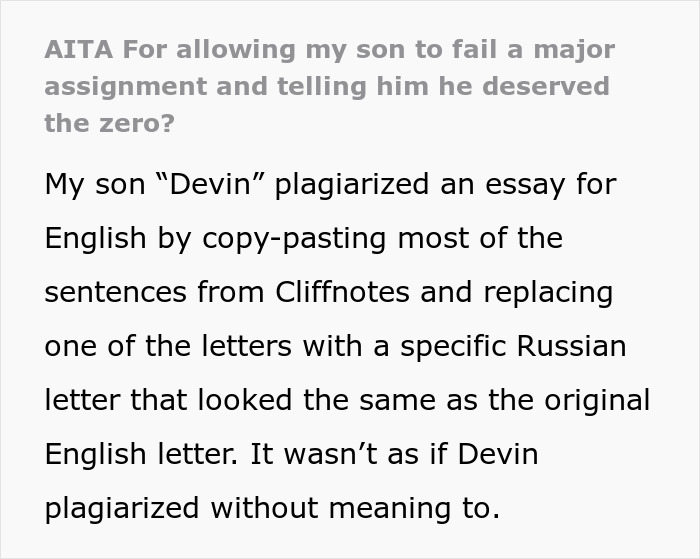
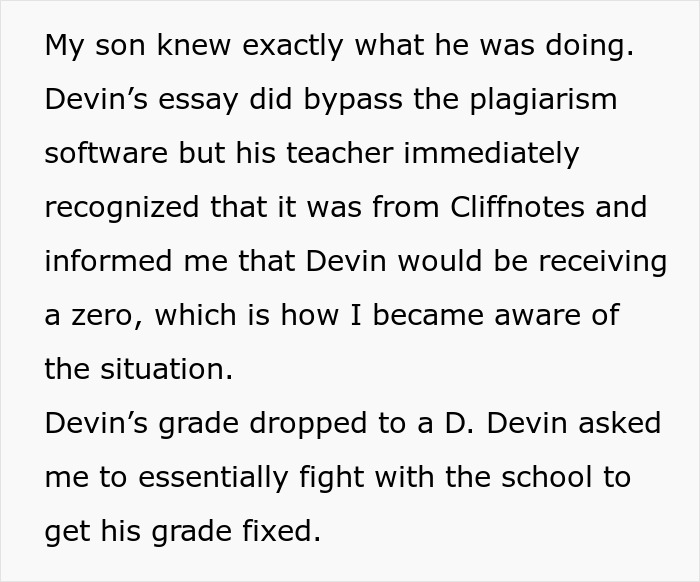
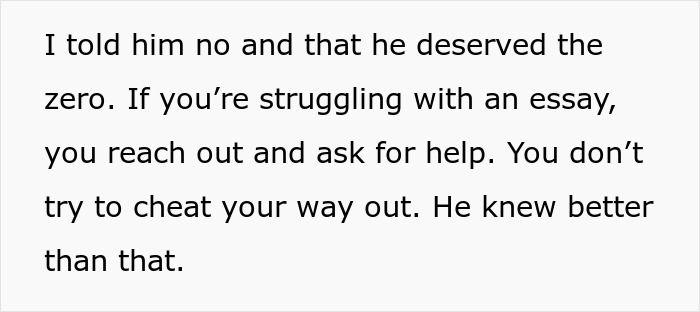

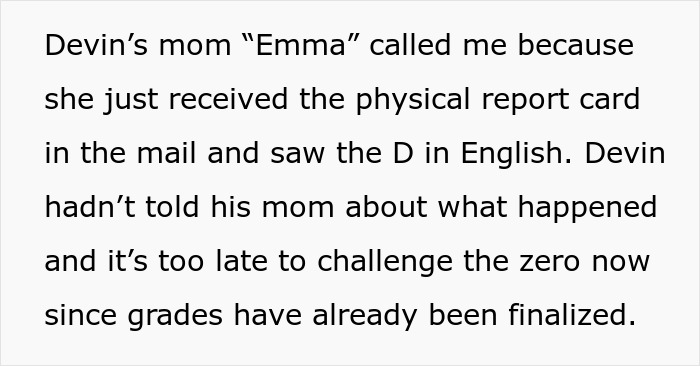
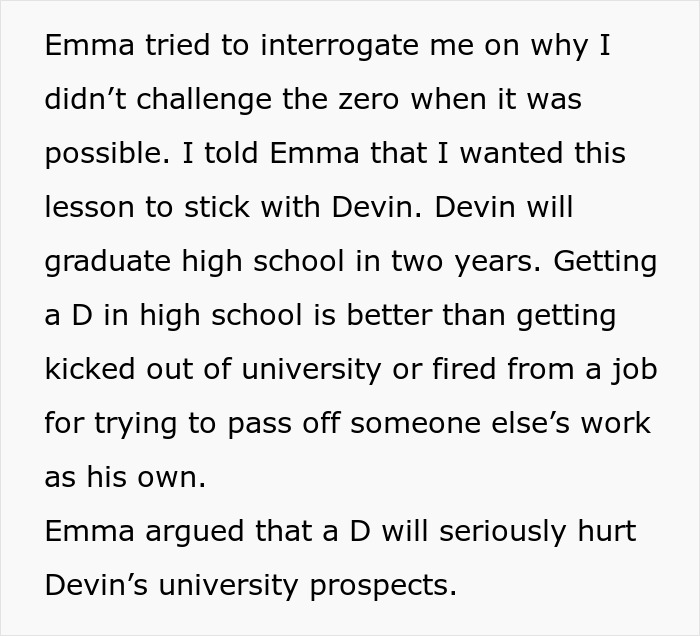
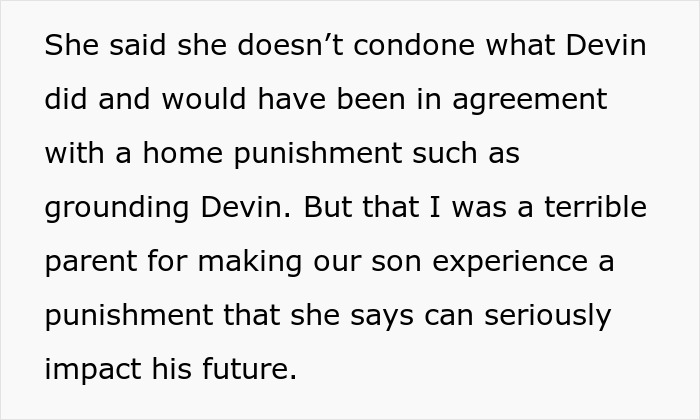
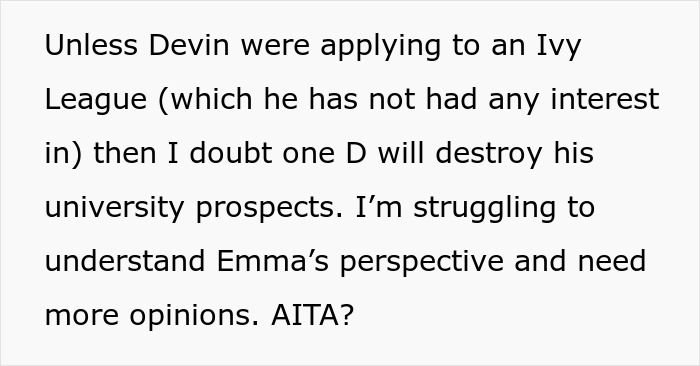


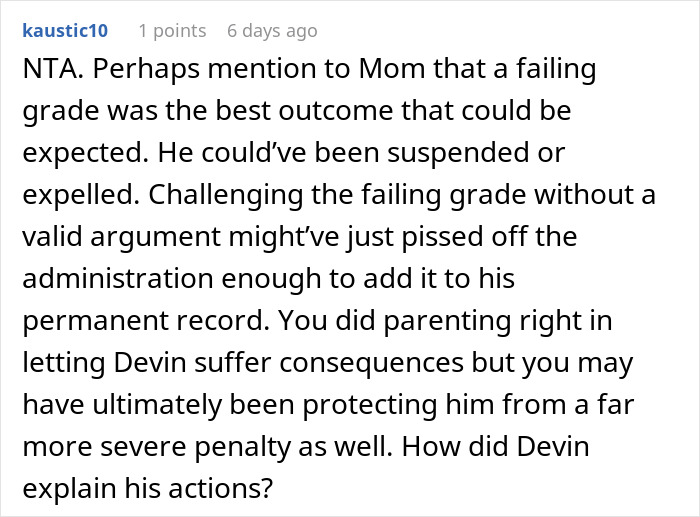
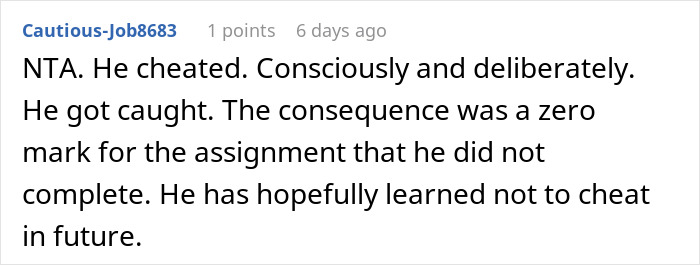
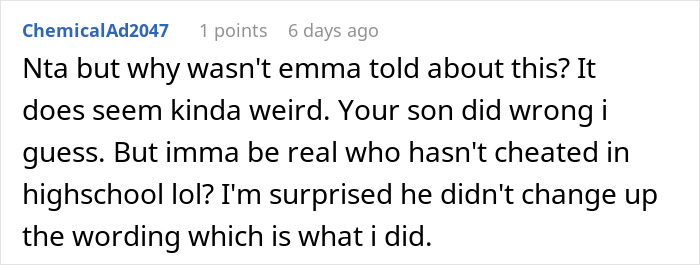
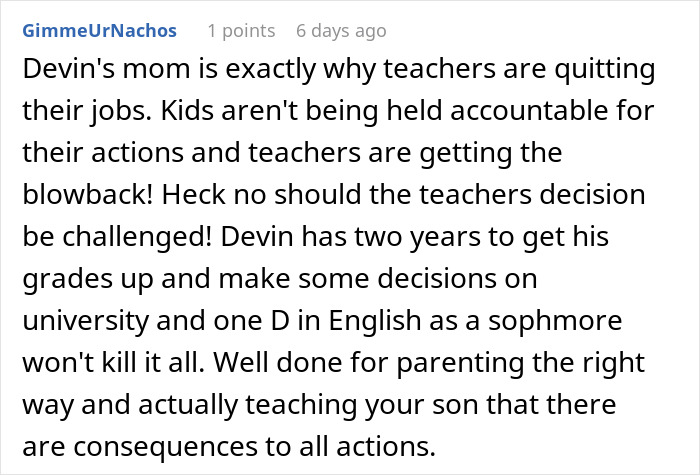
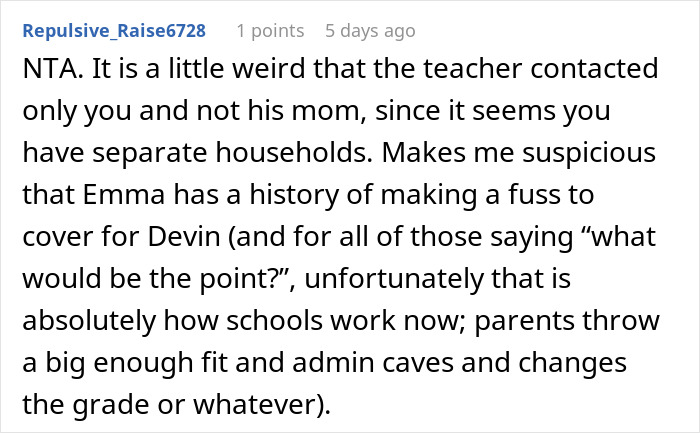
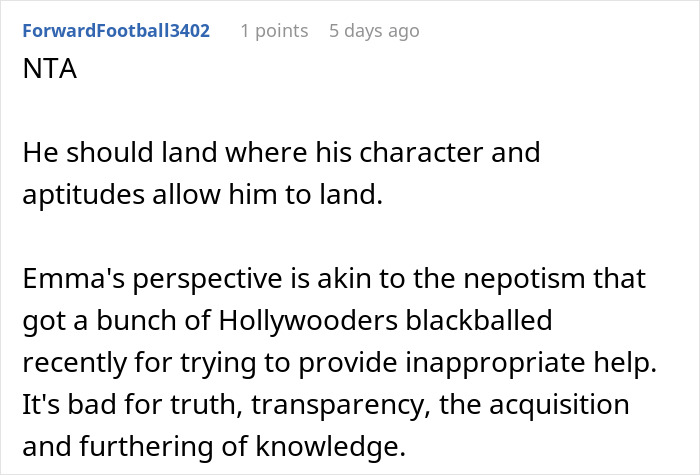

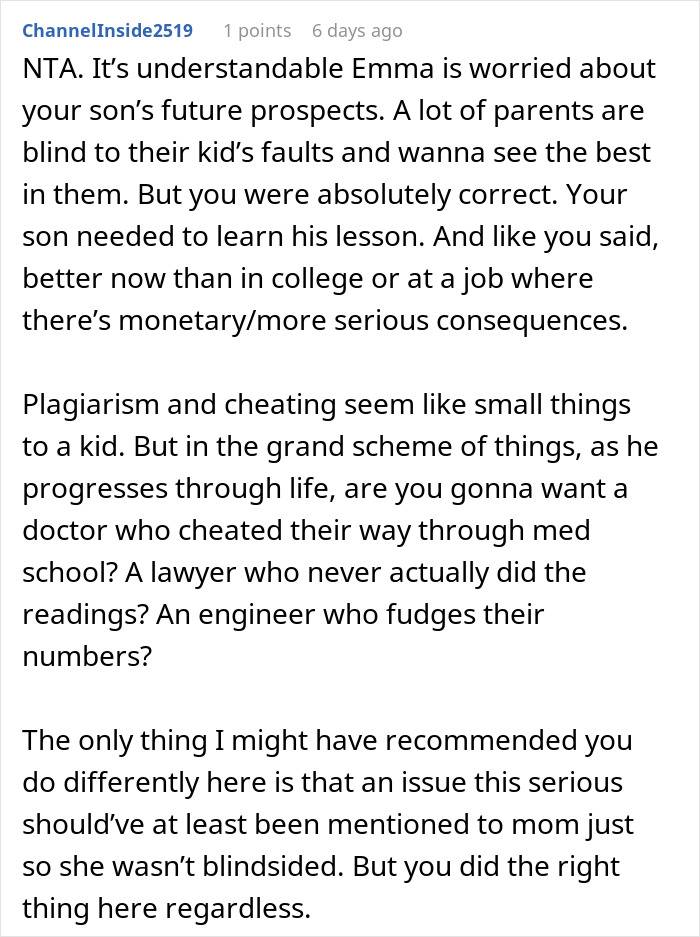
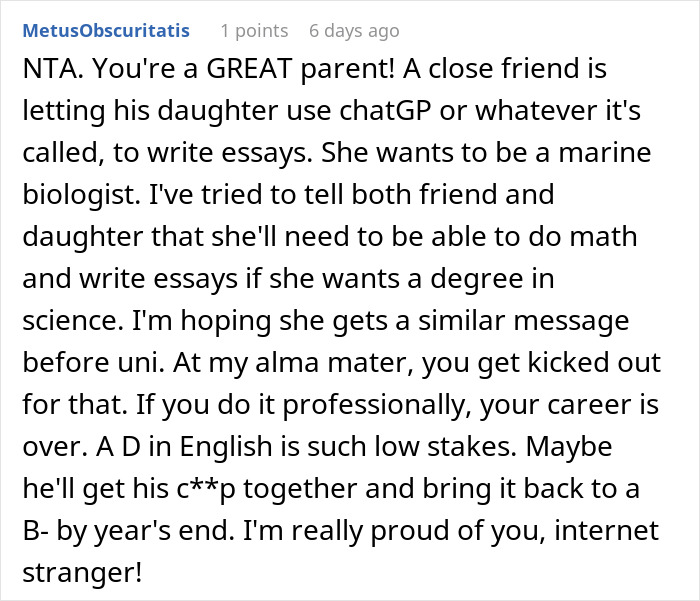
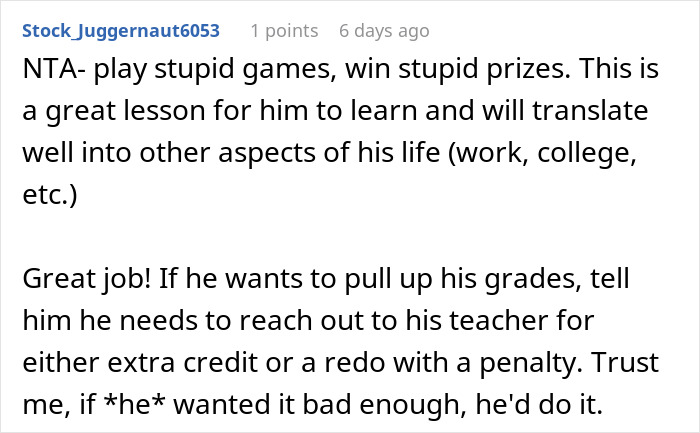
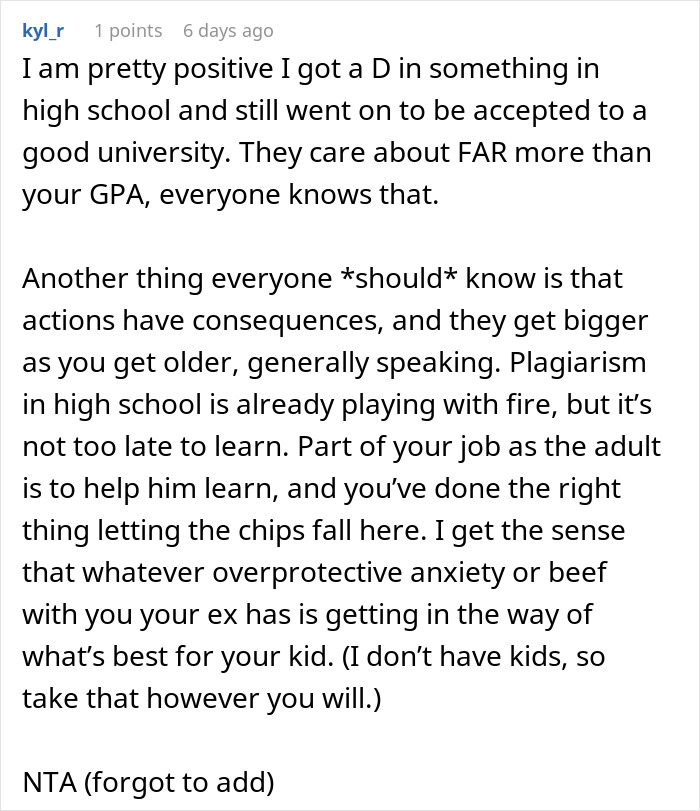
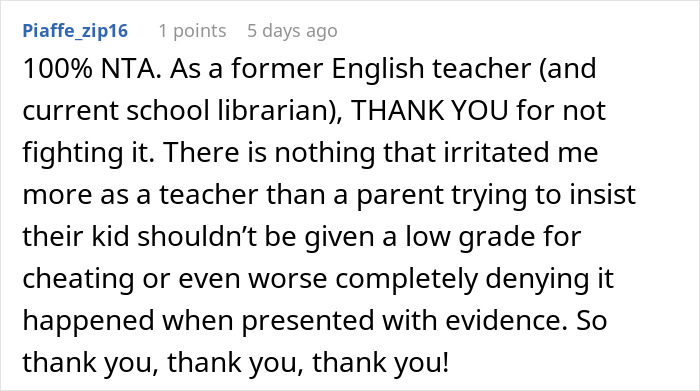
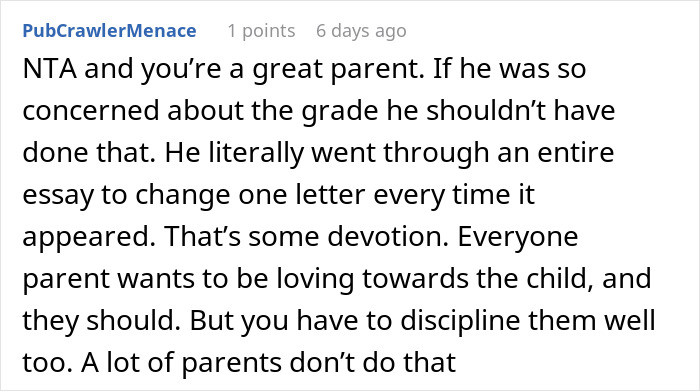














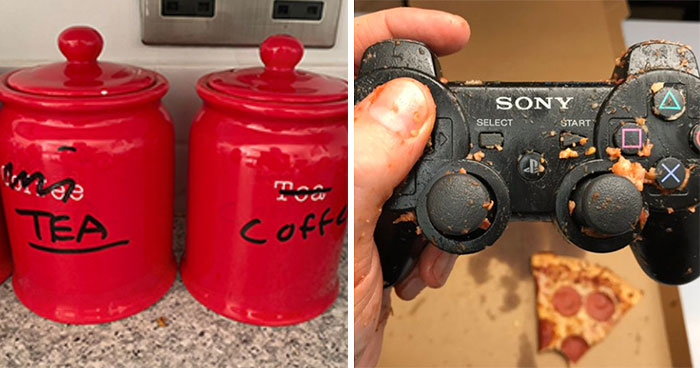
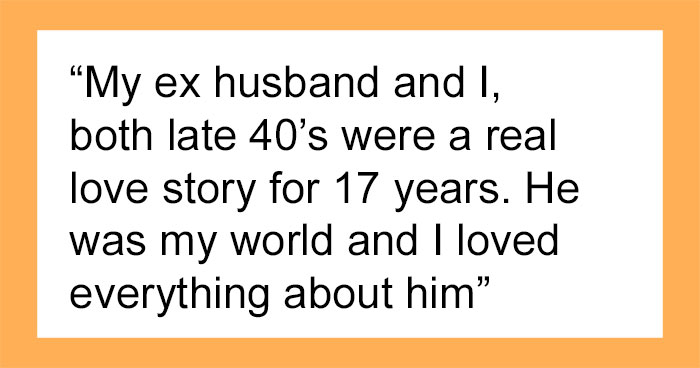


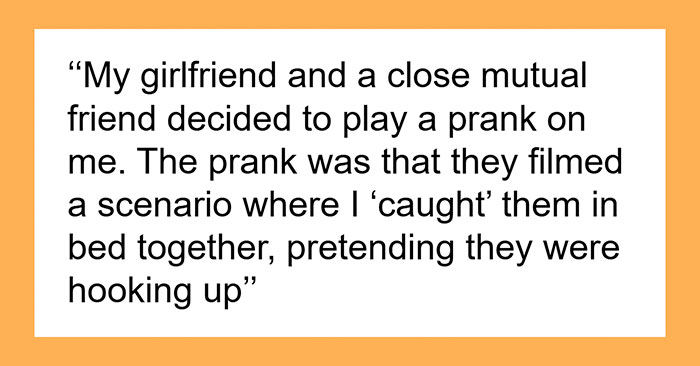
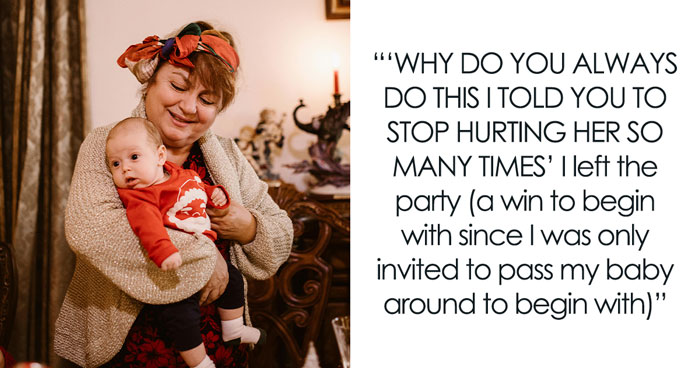


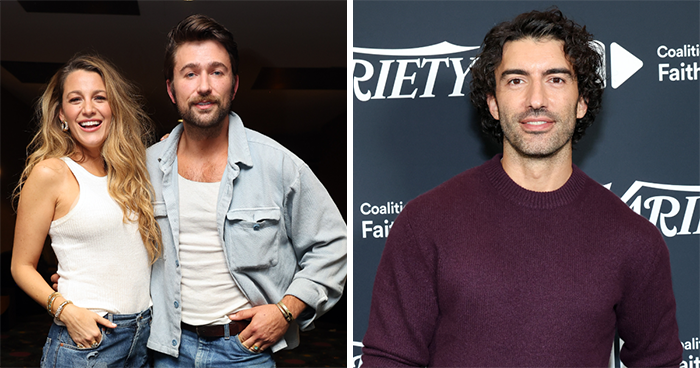
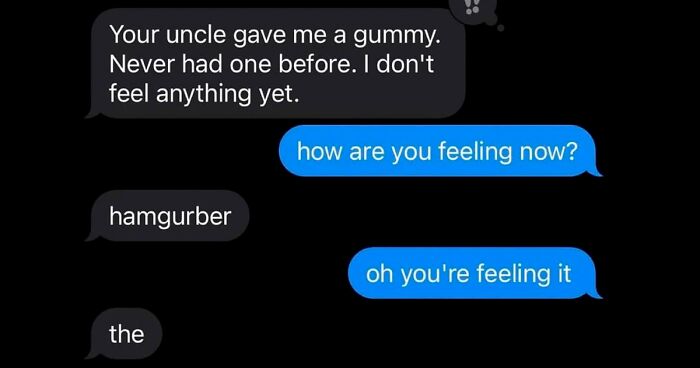

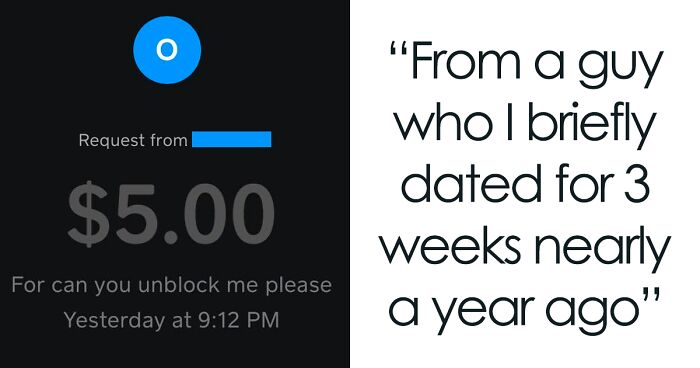

60
31